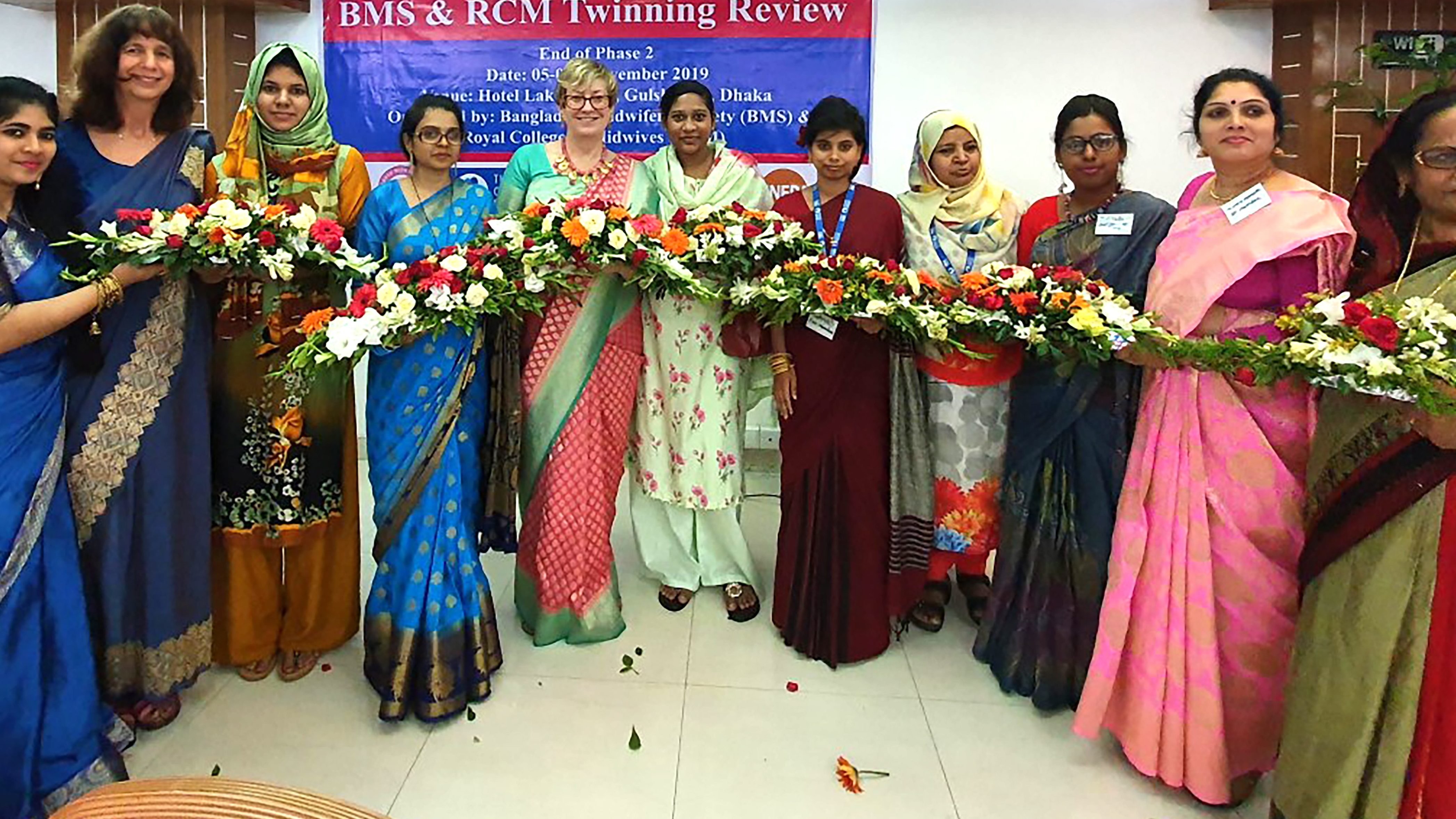A Kingston University midwifery associate professor has been using her expertise to support the Bangladesh Midwifery Society (BMS) and Bangladeshi midwives in training.
Dr Lesley Kay applied for the role of UK midwifery educator with the Royal College of Midwives (RCM) in the spring of 2019 when it was advertised.
“I am passionate about the urgent need to improve maternal and neonatal outcomes worldwide,” she said.
Infant mortality in Bangladesh is 25 babies per 100,000 while in the UK it is 4 per 100,000. Maternal mortality in Bangladesh is 173 women per 100,000 whereas in the UK it is 9 per 100,000.
Dr Kay visited nursing colleges and health care centres in different parts of the country during which she spoke about the value of quality education, promoted midwifery, and gave a teaching session on optimal positioning of the woman to enable a healthy birth.
The passion for women’s health and well being demonstrated by the midwives in Bangladesh is one of Dr Kay’s favourite aspects of the work she does and makes up for the poor hospital conditions in which the midwives have to work.
Dr Kay described the hospital conditions as “challenging” as they are often under-resourced and staffed, as well as being cramped and not very clean.
Slowly, the government in Bangladesh is working towards better conditions and acknowledging midwifery as its own profession.
Dr Kay said of the importance of midwifery: “Global evidence shows that midwives can provide 87 per cent of the essential care that women and new-borns need.
“In Bangladesh, the profession is new and developing, and there are many barriers to its successful implementation. The government is investing in midwifery, but at the moment without further investment and acknowledgement of the value of midwifery (by all stakeholders) it is in danger of not being sustainable.”
She has made two three-week visits to Bangladesh so far, mentoring a young midwifery teacher to further the development of online learning platforms for midwives.
“I have also been assisting the BMS in liaising with midwifery education institutions, helping them to advocate for high-quality midwifery education, raising the profile of midwives and the midwifery society, and acting as an ambassador for the RCM.
“I support the project by specifically focusing on its services to members in terms of education, continuing professional development for those midwives who have completed their training,” she said.
She said the learning experience benefited herself as well as those training, as it allowed Dr Kay to develop her “knowledge and understanding”.
“Having not had the opportunity to work clinically in a low or middle-income country, or to be involved in providing midwifery training outside the UK, I was interested in the opportunity to further develop my knowledge and understanding,” she said.
Dr Kay currently leads a third-year module about midwifery and women’s health exploring both national and international perspectives which is one of the reasons she chose to get so involved in volunteering with the BMS.
“Students have the opportunity to undertake a two-week elective experience, locally, nationally or internationally to observe childbirth practices,” Dr Kay said.
The work Dr Kay has carried out has been well received, and close bonds have been made with both the BMS and RCM.
Dr Kay plans on visiting Bangladesh again this year, but currently, the date is undecided.
Her Bangladesh visits have “refuelled her passion” for midwifery, and Dr Kay said: “I feel honoured to play a part in raising awareness of midwifery, developing mechanisms for keeping midwives up to date in care provision, and in advocating for women, their babies, midwives and midwifery students.”

